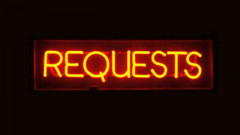This is from the introduction to the forthcoming book. You can find additional excerpts here.
-----
It’s the one thing that unites and connects us all.
We are not united by national origin, gender, politics, ethnicity, and the like. Not universally. The one thing that universally unites us is this:
Love
It's the one thing every human has in common.
Any poem about love in any language still transmits the same experience regardless of the language we translate it into. Sufi mystic Rumi and Nobel Prize winner Pablo Neruda were separated by several centuries yet both their poetry still translates to this:
Love
Love. Love and a clear reverence for the women they loved without losing any of their masculine centers. It's almost become a lost art.
But it does not matter where your lover came from or whether you have the same birth language - or even speak the same language. Or what color they are. We can fall in love with anyone from any place - from any religion or cultural background - at any time.
We’ve all experienced some version of it.
Perhaps it was the rush of the chemical attraction--they touched your hand and the electricity was unforgettable. Or maybe it wasn’t the chemistry, maybe it was the feeling of finally being home. Or a kind of comfort and safety you felt almost immediately. Or maybe it was a feeling of familiarity--as if you've known someone for years even though you just met them.
Then at some point when those feelings (many of which we discover are Illusions and projections) are dispelled, and the person begins to behave in ways that disappoint, confound or even anger us, we may begin to question the connection that we have with them and at times, perhaps, even our own judgment.
Inevitably, we come face-to-face with how many assumptions we've made. How we have built our entire relationship and levels of trust, as well as our fantasies about the future, on these assumptions. And in our pain and confusion, we often make grave errors that only make matters worse and tragically make our future in that relationship - or the next - even worse still.
Sucks, right?
But you know what?
Virtually all of that is avoidable.
Most of us do not know how to set ourselves up for success in the beginning - we start dating based on chemistry and attraction or availability - not on aligned values. We do not know how to have the conversations to set a baseline for what we will agree on - what our agreed foundation is - heck, some people wait so long to have these conversations that they are not even sure if they are monogamous or both dating other people months into dating (!)
These are conversations that need to be had sooner rather than later. And some people know that, but they don’t know how to have those conversations.
Or worse, they are simply too scared to have them.
Then when conflict arises, we lack the tools to navigate the situation in a way that feels good, let alone connective and satisfying to both of you.
Or when the relationship stalls we don't know how to keep it alive, sexy, and have it continue to inspire and uplift - to bring out the best in us.
Then when it ends we have no constructive way to deal with the grief, the self-doubt, the anger, and no capacity to deal with feelings of betrayal or loss or confusion.
At that point, some of us immerse ourselves so deeply into the process and feelings of loss that we may even think that we are destined to repeat the cycles - and perhaps some of you have - that do not work and lack fundamental workability.
This book strives to solve most of the avoidable challenges and problems that arise in all three stages of relationships and provides structures and tools to assist you in working through the unpredictable - and in some cases unforeseeable - problems that arise.
In the beginning: how to avoid unwarranted bliss and the inevitable crash - disappointment and even, how to avoid mediocrity in the middle or simply being in a habit rather than in a relationship, how to deal with anger fear jealousy all those things that can arise and create conflict in that middle stage. And of course, the confusion, anger, and grief that can arise when it ends if it ends and how to set yourself up for Success without vilifying the other person and how to reclaim your power if you've lost yourself in the relationship.





